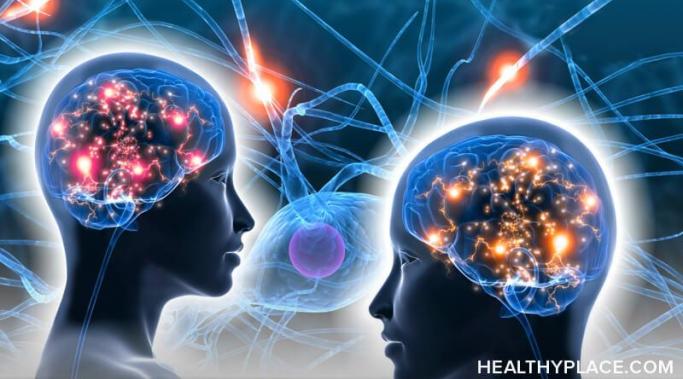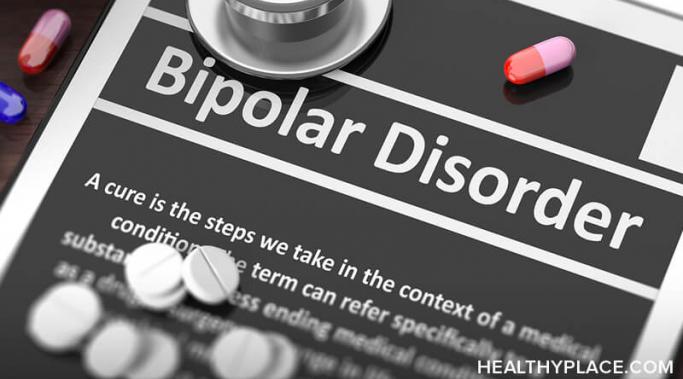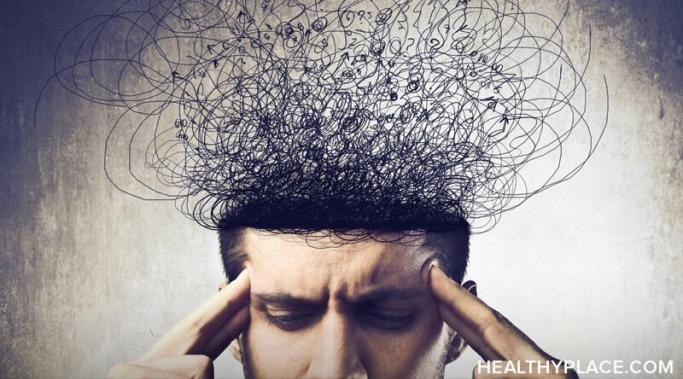I've been flitting in and out of a bipolar mixed mood for a while now, which leaves me trying to find the cause of my bipolar mixed mood. This is no mean feat. So many things can impact a bipolar mood state that narrowing it down to a single mixed mood cause is pretty tricky.
Breaking Bipolar
The word "neurodivergent" is flung around social media and is now very politically correct. For example, it's supposedly okay to call a person "neurodivergent," whereas calling them "mentally ill" will get you social media-canceled. But if people insist on using the term neurodivergent, then let's at least know what it means and how to use it properly.
I'm tired of explaining bipolar disorder to people. I realize this is a terrible sentiment to one who actually does this for a living, but it's one I've found myself thinking about at times. In some respects, explaining bipolar disorder and mental illness in general to people is extremely rewarding; in other ways, though, it's just a slog. Having the same conversation over and over again about mental illness with someone who has no clue is exhausting.
Antipsychotics are a class of medications that many people don't like to take. In fact, I was terrified of the notion that it was even a possibility once upon a time. But antipsychotics are often used to treat bipolar disorder and some depression, along with illnesses like schizophrenia, with which we classically associate psychosis. But even though antipsychotics are approved for use in those areas — thus proving they do work for some with those illnesses — people still don't like to take antipsychotics. Why don't people like to take antipsychotics? Well, if you're me, it's because you've tried them.
In our society, people are shamed for not having a positive outlook. In fact, I just read a comment on LinkedIn that said, "Maintaining a positive outlook, ALWAYS, is so very important. Always look for that silver lining. Trust me, in the end, everything is exactly where it should be." And that sums up how many people feel about a positive outlook: it's critical, and something's wrong with you and your line of thinking if you don't have a positive outlook.
Recently, a report by the U.S. Preventive Services Task Force recommended that every adult under 65 be screened for anxiety by their primary care doctors (family doctors). When I first saw the headline, my initial response was, "Well, that's stupid. You go to the doctor when you're sick, and people know when they're sick." But, upon second thought, I realized this was wrong. Screening for anxiety in general doctor's appointments does make sense.
Today is World Suicide Prevention Day, and so the question arises: no matter what we do, can we prevent all suicides? I think even the most ardent suicide-prevention groups would admit that we can't prevent all suicides. There are many reasons for this, including the fact that people often decide to end their life mere moments before they do it, and it's hard to get to those people in those moments. Nonetheless, can we still chip away at the number of suicides? Can we really prevent most suicides? (Note: This post contains a trigger warning.)
I can't stop crying. It's because of personal loss and depression; I know this. But it seems that all the knowledge in the world doesn't help. It seems like I just manage to right the ship, and then I find myself in a pool of brackish water again. Not everyone with depression reacts this way, but I cry far more than my fair share. No matter what I do, I just can't stop crying.
Your thoughts aren't real. I know that might sound false, but understanding both parts of that sentence is critical to dealing with bipolar disorder. I have to remember that sentence every day in order to get me through. But recognizing that my thoughts aren't real or permanent does help, and I believe it can help you too.
I had a discussion with my friend once about brain fog, and I said brain fog wasn't a real symptom of depression; it was just sort of a layperson's description of cognitive difficulties. Brain fog itself wasn't exactly real, per se; I said I wasn't exactly wrong about that, but I wasn't exactly right either. Brain fog is not exactly a medical descriptor, but I identify with it as a part of my illness(es). I can now attest to the fact that brain fog is real.









